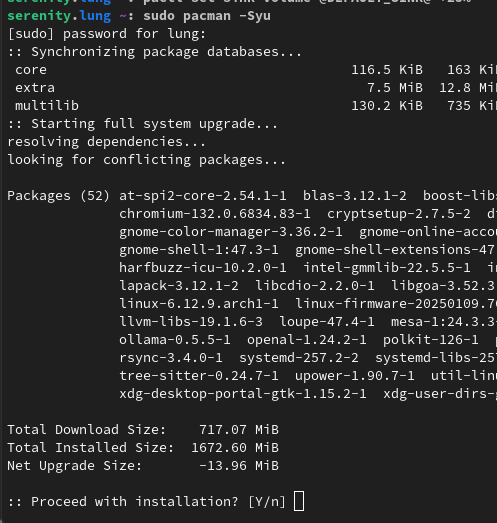Linux
Welcome to c/linux!
Welcome to our thriving Linux community! Whether you're a seasoned Linux enthusiast or just starting your journey, we're excited to have you here. Explore, learn, and collaborate with like-minded individuals who share a passion for open-source software and the endless possibilities it offers. Together, let's dive into the world of Linux and embrace the power of freedom, customization, and innovation. Enjoy your stay and feel free to join the vibrant discussions that await you!
Rules:
-
Stay on topic: Posts and discussions should be related to Linux, open source software, and related technologies.
-
Be respectful: Treat fellow community members with respect and courtesy.
-
Quality over quantity: Share informative and thought-provoking content.
-
No spam or self-promotion: Avoid excessive self-promotion or spamming.
-
No NSFW adult content
-
Follow general lemmy guidelines.
view the rest of the comments

Back in the day there was a Mac OS update (Snow Leopard) that took gigabytes off. They dropped support for PowerPC CPUs. So the compiled binaries basically got slashed in half.
https://en.m.wikipedia.org/wiki/Mac_OS_X_Snow_Leopard
Wait they pushed binaries for both architectures to everyone?
It probably made the downloaded binary smaller, but the actual instal size for x86 machines probably didn’t change much.
...what?
We're talking about the end of the transitional period from PowerPC (the G3 and G4 iMacs and iBooks) to the Intel architecture (about the time they went to the Macbook nomenclature). If I read this right, they didn't push separate PowerPC and Intel architecture versions, you'd just get MacOS (or in those days, OSX) and it would ship with both binaries. Which, compiled binaries would be quite different for different architectures, data files, graphics, interpreted code etc. would be similar but pre-compiled binaries would be different.
I know for awhile a lot of applications were only available for PowerPC, so they did the Rosetta translation layer, which is a reason why you'd find PowerPC binaries on an Intel system. They did exactly that again with the transition from x86 to ARM.
I already responded to you in another comment, but:
No, it's even crazier than that. You didn't get separate PowerPC and Intel binaries either. You got fat binaries that had machine code for both architectures!
Not sure I want to understand how they got that to work.
I think this is available on Linux too if I remember correctly. You can compile a binary that contains multiple architectures. It’s been awhile but I think ELF binaries can do it.